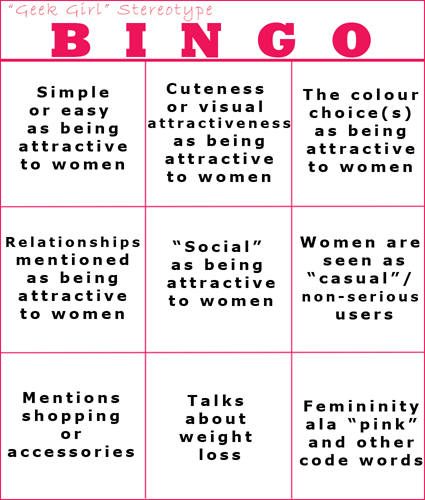Maybe it’s a little unfair to be using FoxNews as the subject of a PiA post, since that station seems to go out of its way to defend and perpetuate bigotry, but the methodology is exactly the same as people with good intentions use, so I decided that it was worth using the material.
The Hannity and Colmes section starts out with Alan Colmes giving an overview of the issue and asking president of the Organization of Chinese Americans in New York, Vicki Shu Smolin, some questions about why the Asian American community feels that the Doghouse jocks and the show’s producers should be fired. Despite the biased slant on the questions, Colmes only interrupts Smolin once, and it is during a pause in the sentence and for the purpose of segueing into the Q&A with Michael Harrison, the editor of Talkers magazine. During this part of the show, Sean Hannity takes over the role of questioner.
Privilege #1: The Right to Offend
Hannity: Michael, I’m getting concerned here… like for example, both of my parents came from Ireland. If someone tells an Irish joke, am I supposed to get offended? Are we at the point where we can’t–this isn’t my type of humor, but I’m getting very nervous about the type of environment that’s being created here.
What Hannity here is concerned about is that free speech will be curbed if we put social pressure on comedians and other well-known personalities to practice self-censorship in terms of bigotry. This is actually a common argument, and the reason I put it in with “privilege” is because in this case “free speech” is being used to mean the right to insult, a “right” that is exercised disproportionately on non-privileged groups and with a disproportionately heavy impact.
When people try to use the “free speech” argument to caution against groups calling for action when they are the victims of racism, sexism, or other forms of bigotry, it’s not just about potentially curbing one’s ability to speak one’s true mind, but the collateral damage is that it implies that one should not be held accountable for one’s words. As earlbeck says, “But freedom of speech is not freedom from criticism, and freedom of speech is also responsibility for the words that one uses… People need to take responsibility for their actions, and that includes their words.”
What groups like the Organization of Chinese Americans are doing isn’t asking for these men or companies to be thrown in jail for what they’ve said, but rather making a statement that they, and all Asian Americans, have been subjected to racism (as all women have been subjected to sexism) by the show’s content, and that the show is responsible for its content and that it must face the consequences of its free speech.
But Hannity is skillfully using a rhetoric that erases that responsibility, a usage enabled by privilege. Privilege is being able to be free from responsibility in many encounters that involve a non-privileged group. Especially in cases like these, where the offense is “minimal” — meaning it was “only” words, or some other non-violent incident — the personal responsibility we have for our own words, and the corporate responsibility that companies have for the content of their shows, can be neatly swept under the rug of “free speech”, because no one wants to “walk on eggshells” or worry that maybe sometime, somewhere, they will face real consequences for a casually bigoted thing that they have said.
Privilege #2: My experience speaks for all
Harrison responds in agreement to what was said about the restrictive environment, then Hannity cuts him off to say the following:
Hannity: Anyone can make fun of me, I don’t care. By the way, Michael, as you know–we’ve been friends a long time– they do.
I hear this one a lot in real life. “People make fun of me all the time,” say the wealthy, white, heterosexual men in my family, in my school, and online. As if their experiences are universal. Privilege is assuming that your experiences give you the authority, and the knowledge, to rightfully speak for the experiences of others.
I have no doubt that Hannity is made fun of. I also have no doubt that there is some pretty vile stuff about him said in person, in the internet, through letters, and any other medium that people can communicate through. He’s a TV personality, and one on FoxNews at that. But three things are going on: 1) he’s implicitly conflating good-natured teasing (through his nod to Michael as a longtime friend) with actual verbal attacks on his person; 2) he’s erasing the distinction between receiving jokes as a person in power versus receiving jokes from a person in power when you are a person/group without power; and 3) he’s assuming that his potential feelings on this matter are the only valid ones.
Those three tactics both minimize the acknowledgment of the damage of racism, sexism, and other bigotry, while providing Hannity with a safe cocoon of rationalization in which to feel justified about his stance. The root of his argument is, of course, that he (and others) should be allowed to say whatever bigoted things that they want without being censured, but if he were to state it like that, then he would be called a racist, a sexist, and an all-around bigot.
By playing it up in the, “Well, that kind of stuff happens to me, too, and I don’t react so strongly!” He paints himself and his argument as rational, logical and correct and the non-privileged group’s reaction as emotional, illogical, and wrong. This is probably not even cold calculation on his part, but rather an honest attempt to understand the issue through his own experiences. But, when you are the one with power, you cannot assume that the situations you’ve faced are comparable to similar ones that people without power face. This is because, as I’ve stated above, the power dynamics are completely different and therefore, even taking out the differences between individuals, the situations, though similar on the surface, are in fact fundamentally different.
Endnotes: Bigotry in Action
This has already turned into a long post, but I would like to point out one thing. There is a point where Hannity’s privilege turns into actual bigotry when he addresses Smolin for the last time. Now, keep in mind, Hannity interrupted Harrison once, and that was about the time when he segued to his thoughts on the issue and began, well, the way it came across to me as a viewer, was that he began lecturing Smolin.
He interrupted her no less than three times, all of them when she was in mid-sentence, trying to answer his questions and assertions. He talked over her twice, one time of which she refused to stop what she was saying and kept talking until he gave her the floor, the other time she let him interrupt her. I can’t speak for the racism aspect (although I would suspect that it’s similar), but I know that men have a habit of interrupting women and women have a habit of letting them. I, myself, have been in a couple situations where I have literally said, “Let me finish,” and “You’ve interrupted me,” to a man and had him not let me finish what I was saying.
While this does stem from the privilege of feeling that you have the right to be heard anytime, anywhere, what Hannity did — and what was done to me, and continues to be done to countless other women — is sexist. It doesn’t matter that, since it stemmed from privilege, he probably wasn’t aware of it. It doesn’t matter that he probably intended to treat Smolin with the same courtesy as Harrison. The facts are that he blatantly and obviously silenced a woman and that passes privilege and goes straight into sexism.
The reason I bring it up here, beyond the fact that I think it needs to be discussed, is because this is a perfect example of how privilege enables bigoted behaviours to escalate. If Hannity didn’t have the privilege of speaking up anytime and anywhere nursed by our society — as a white person, a man, a TV personality, etc — then he would have a harder time casually silencing another human being.
I write this series to bring more awareness about what privilege is and why it’s important to understand the kinds of privilege that we have. I have not even touched on all of the elements of privilege that were displayed in that 6:12 minute news spot, and this one instance is only a drop in the bucket of the kinds of privileges we take for granted in our own lives. People — real people — have been hurt by not only the likes of Don Imus and the Doghouse DJs, but by the sheer number of people who have rationalized the behaviour as normal an harmless while pathologizing the responses by the non-privileged communities and their allies as anti-free speech, censorship, and emotional and therefore wrong and dangerous. And, well, if that’s not Privilege in Action, then I don’t know what is.
Via reappropriate.


